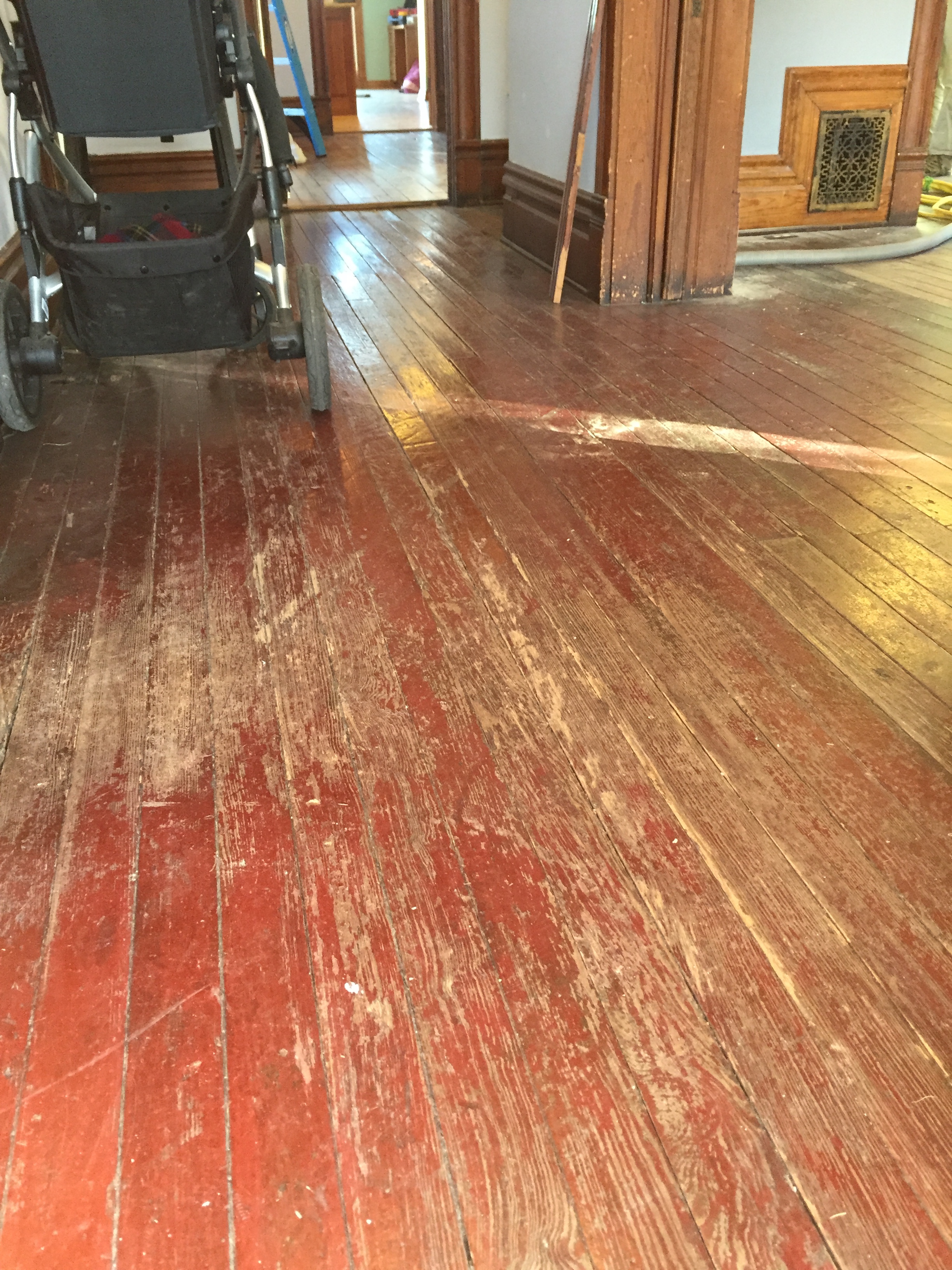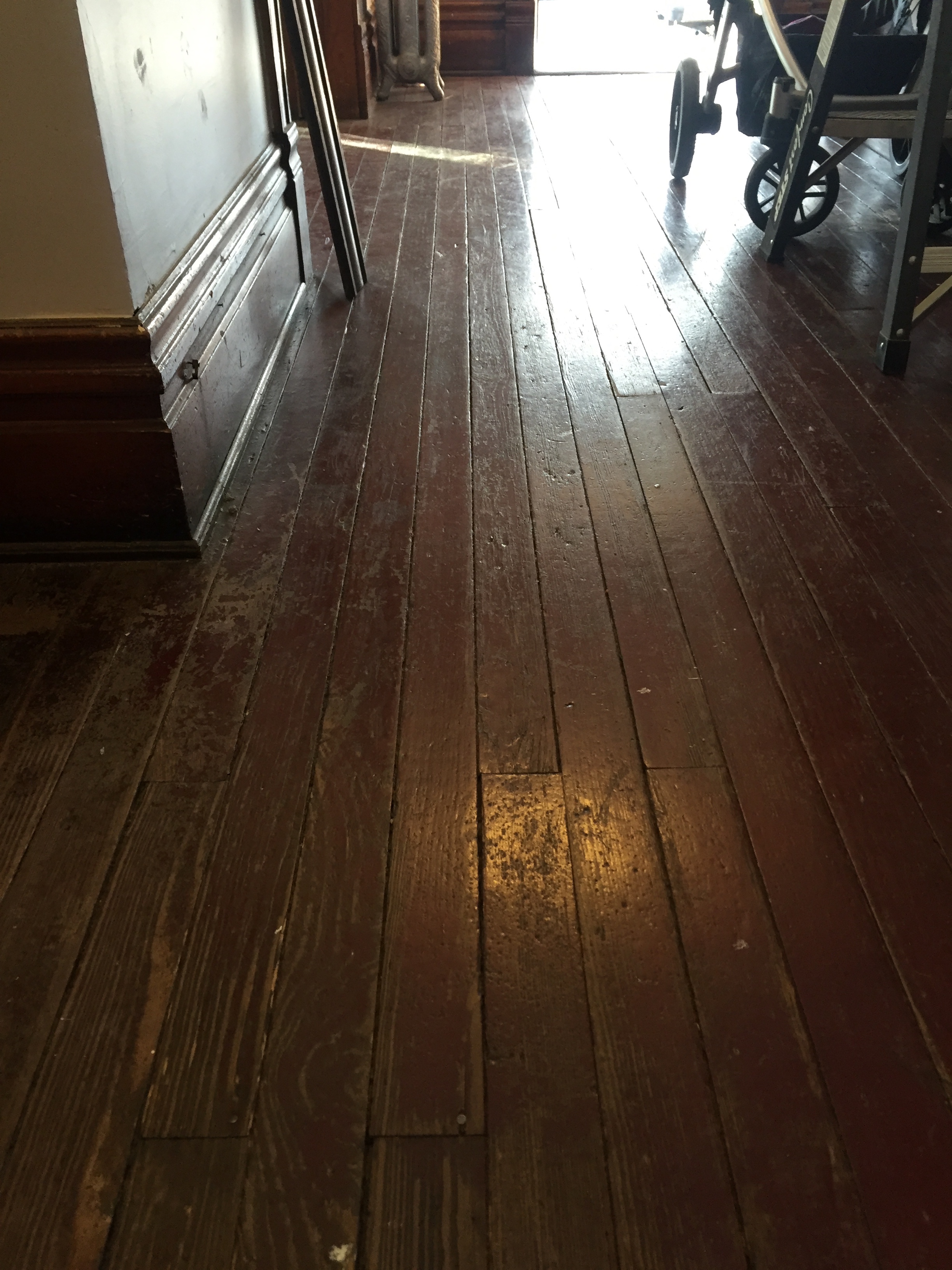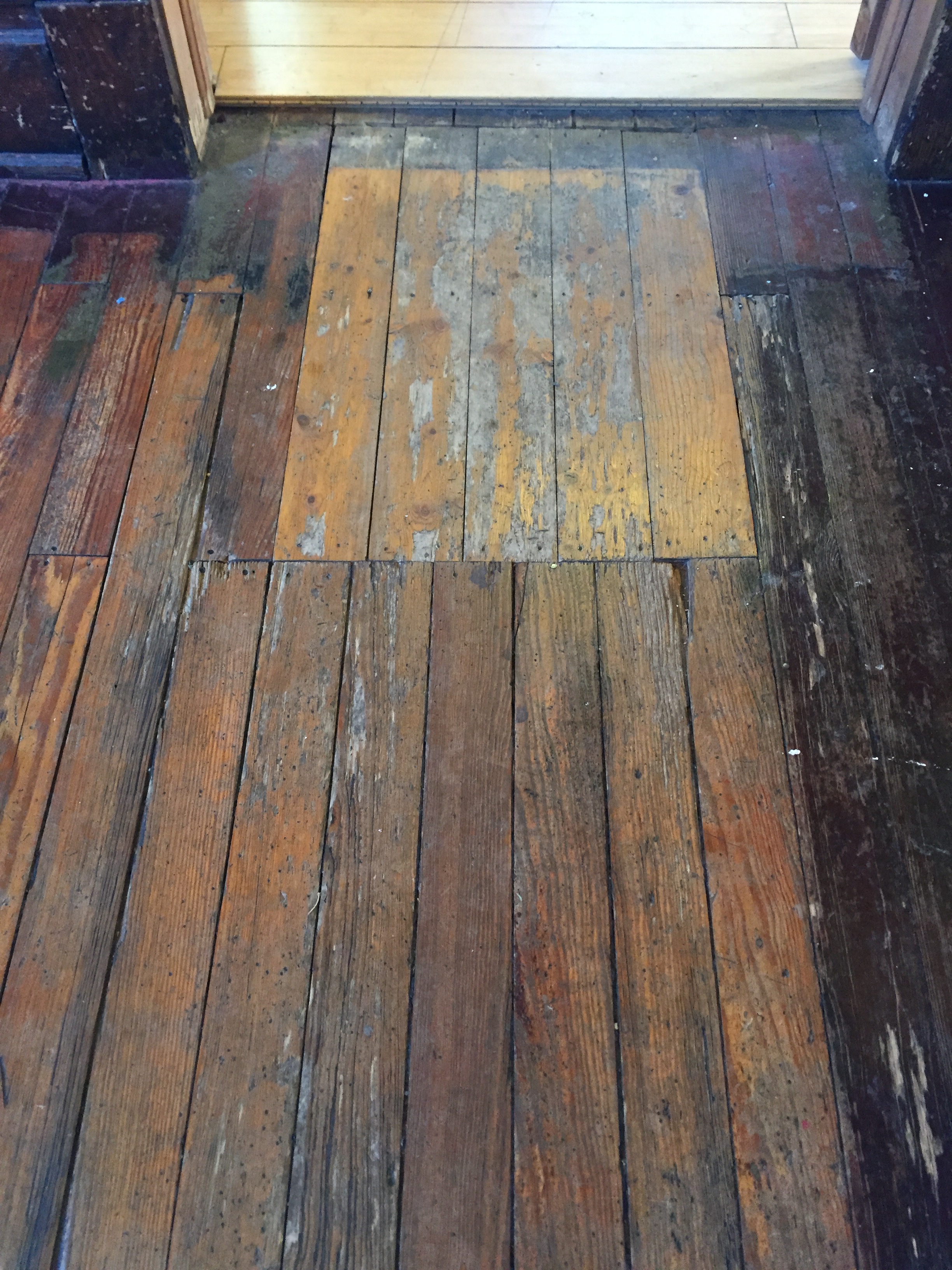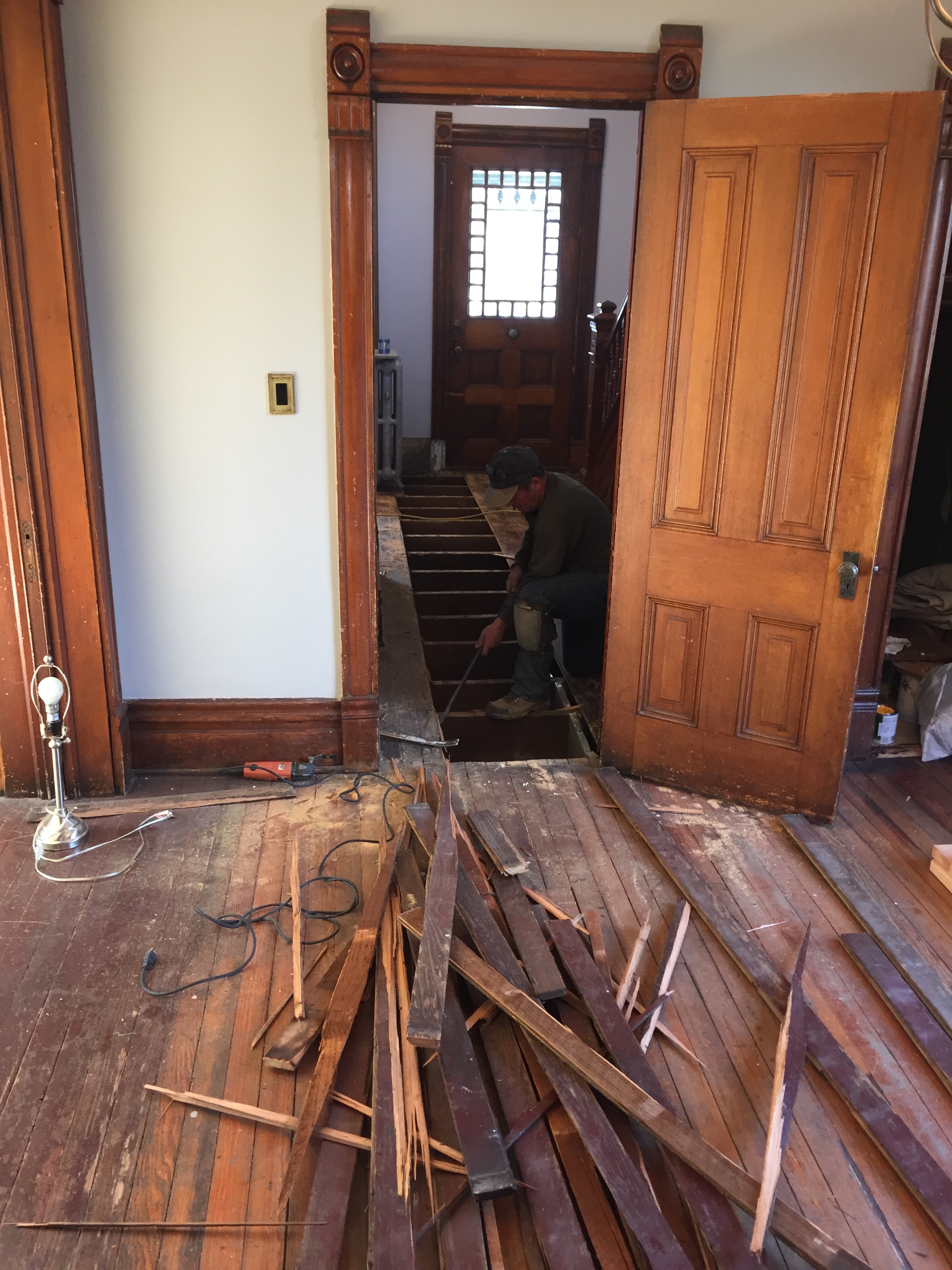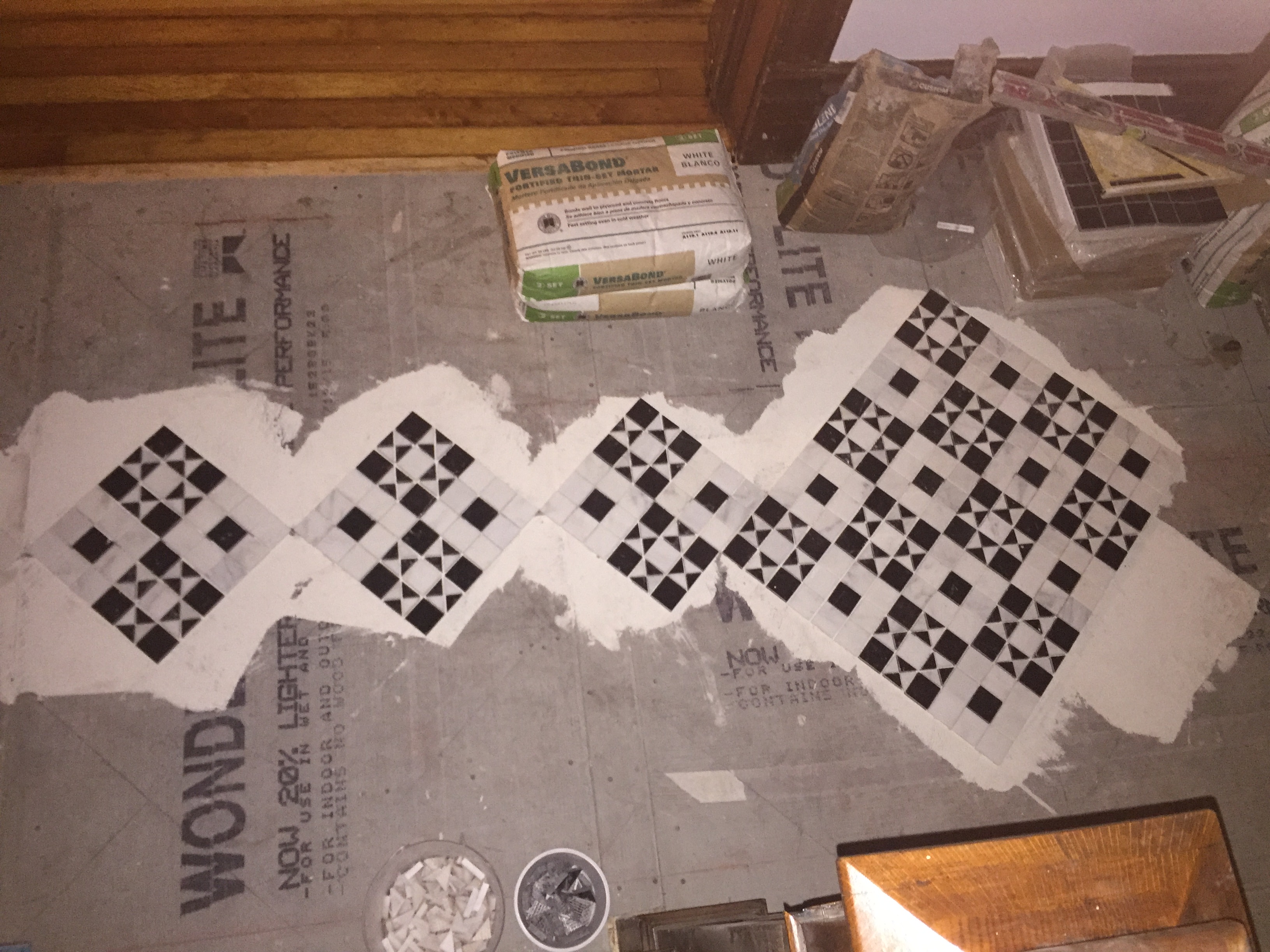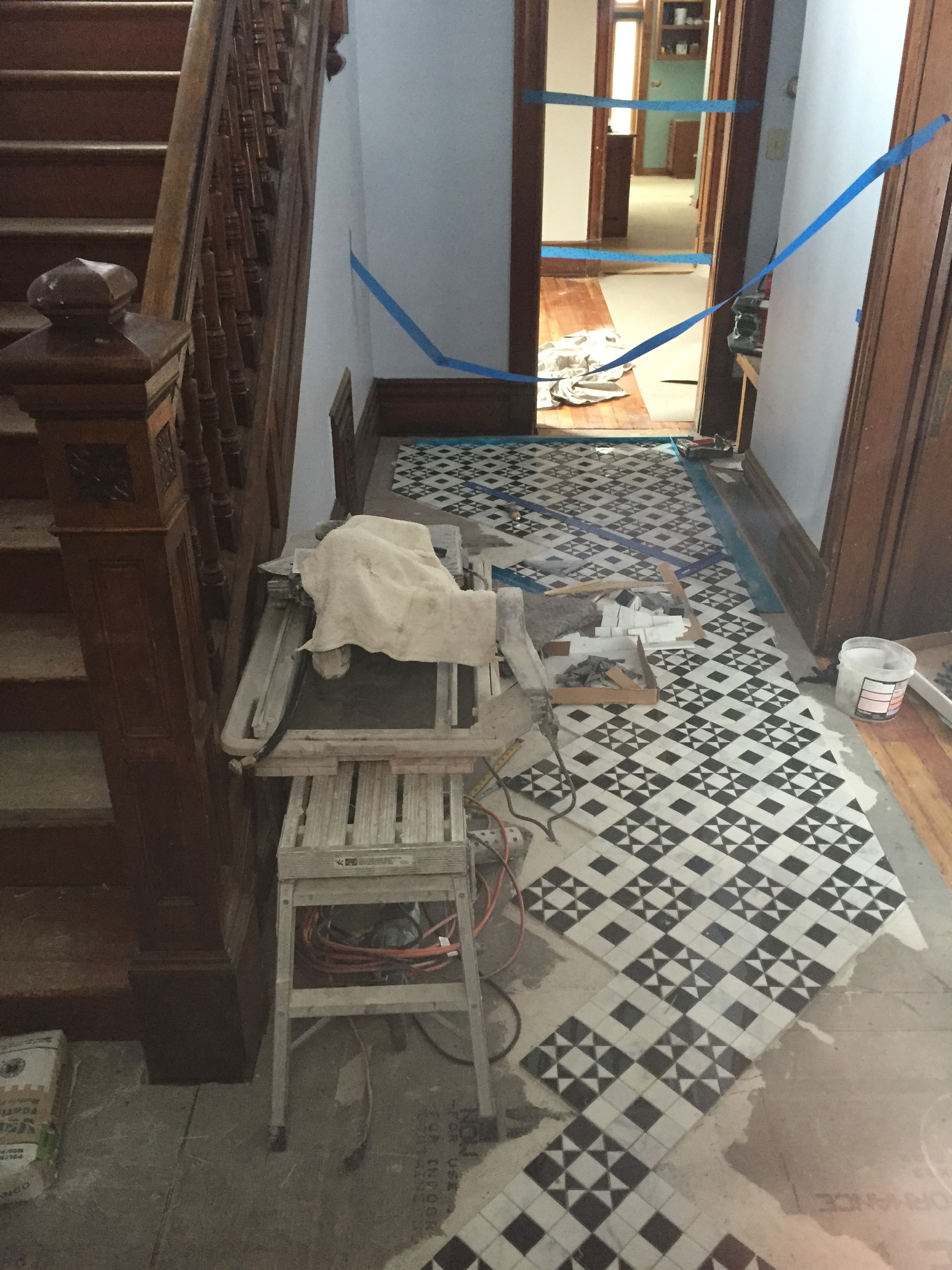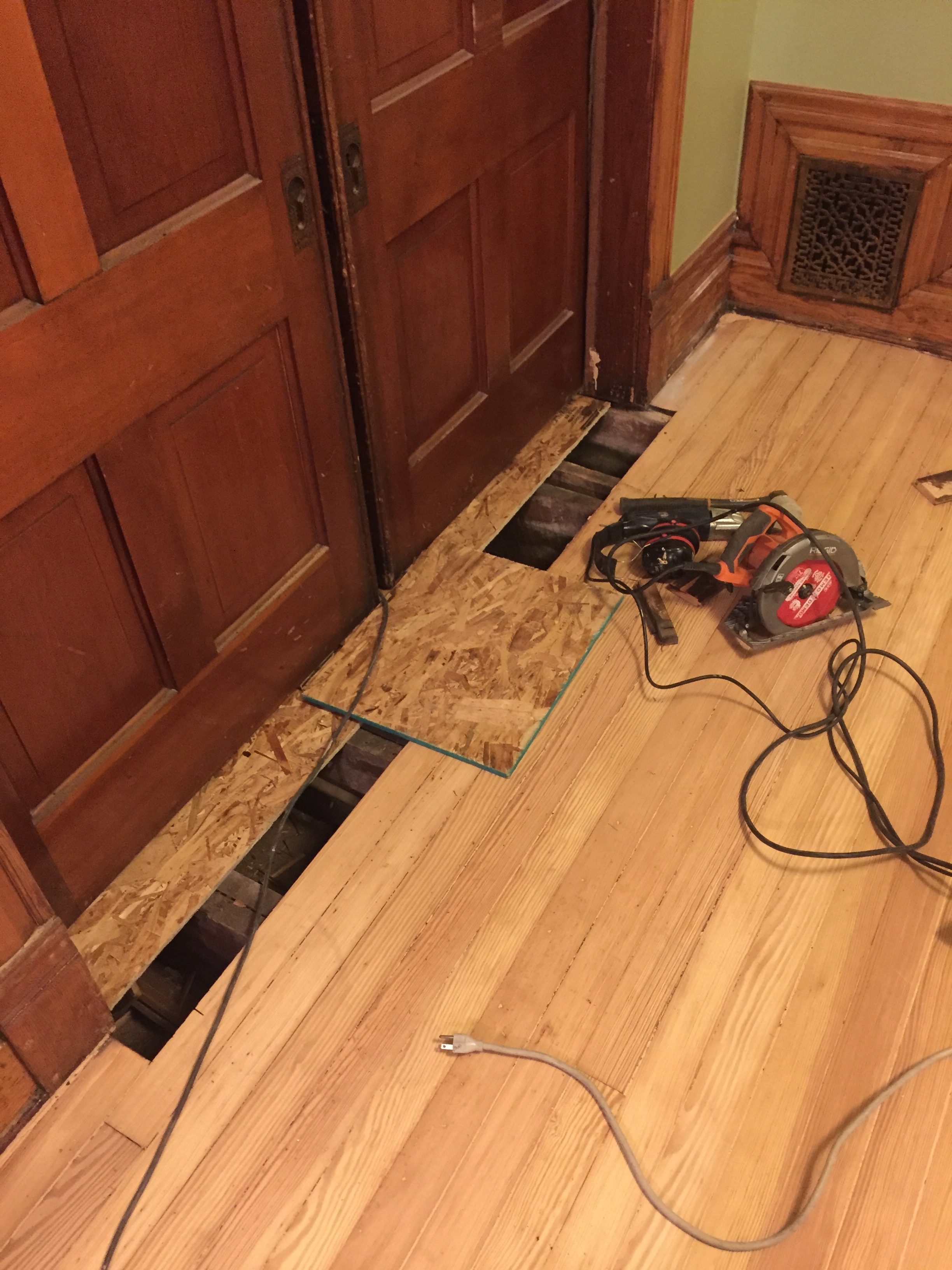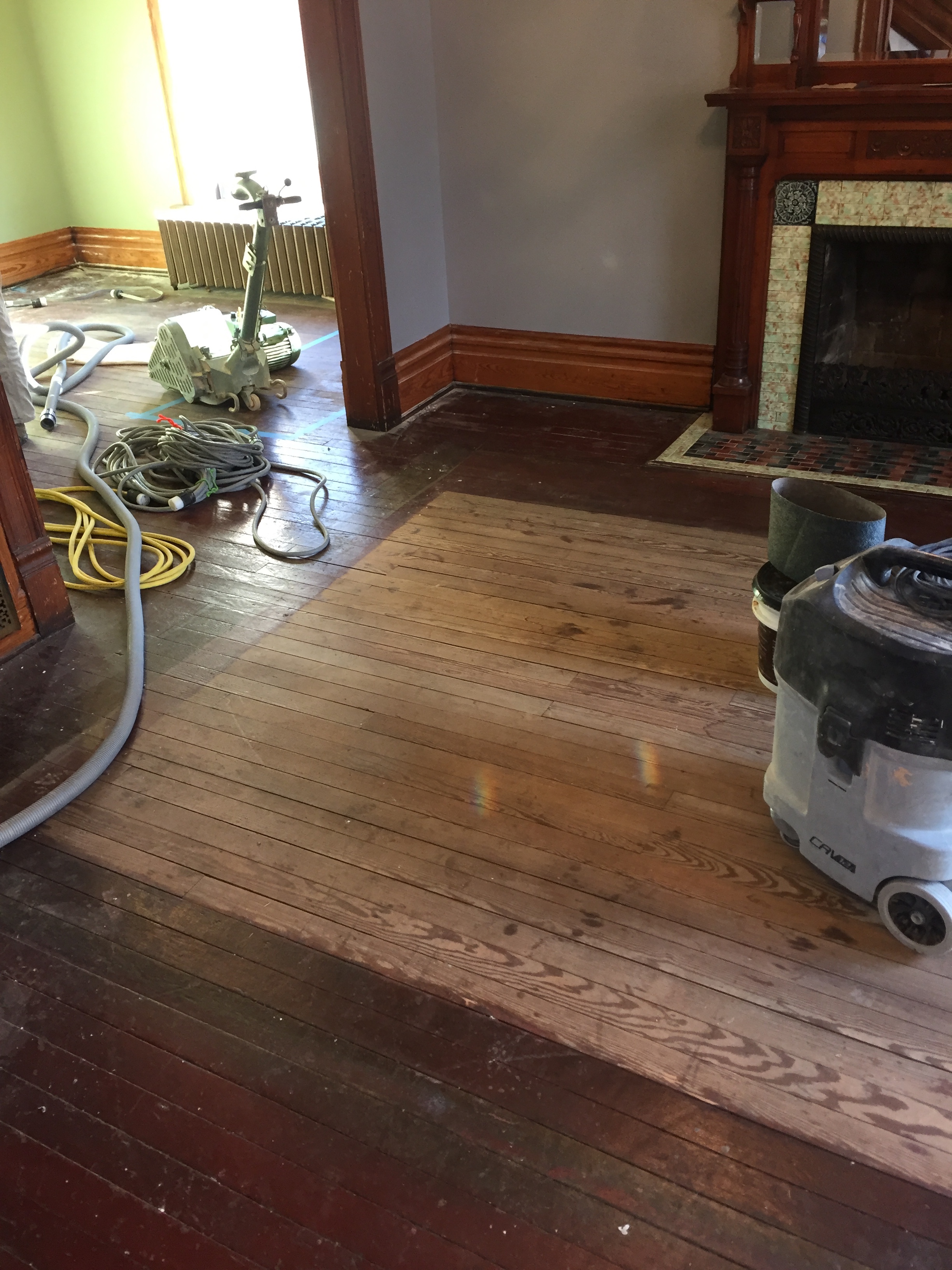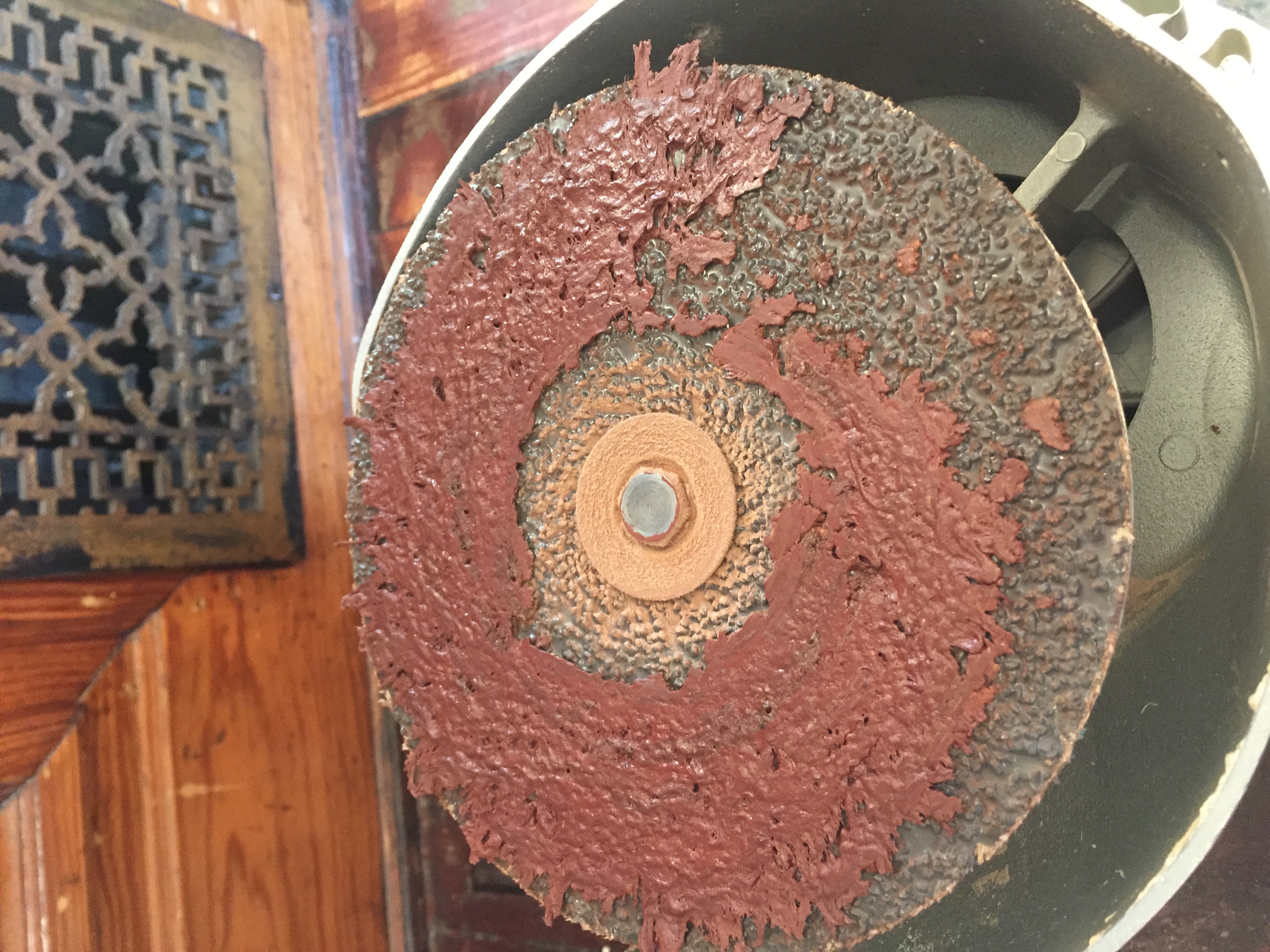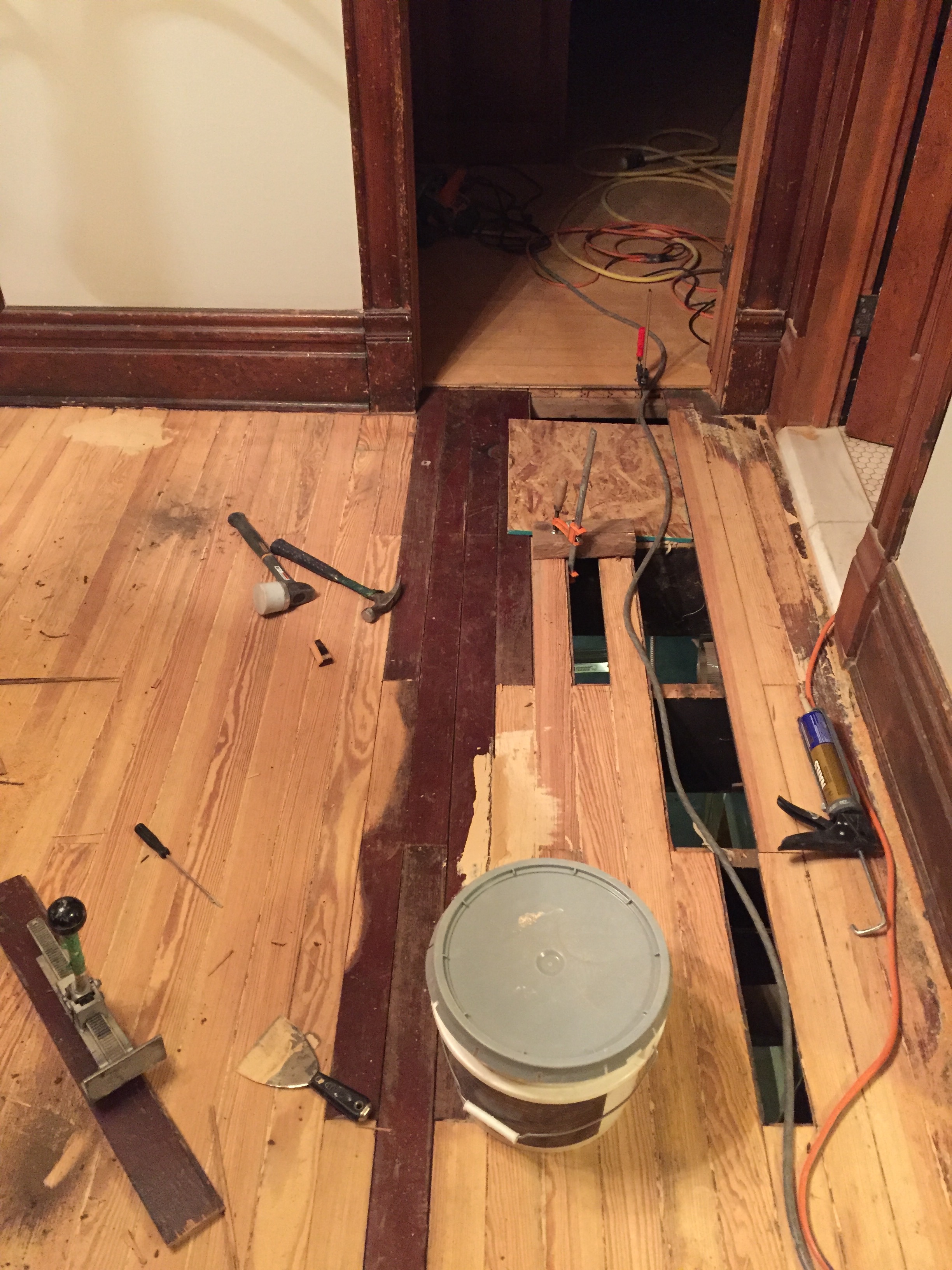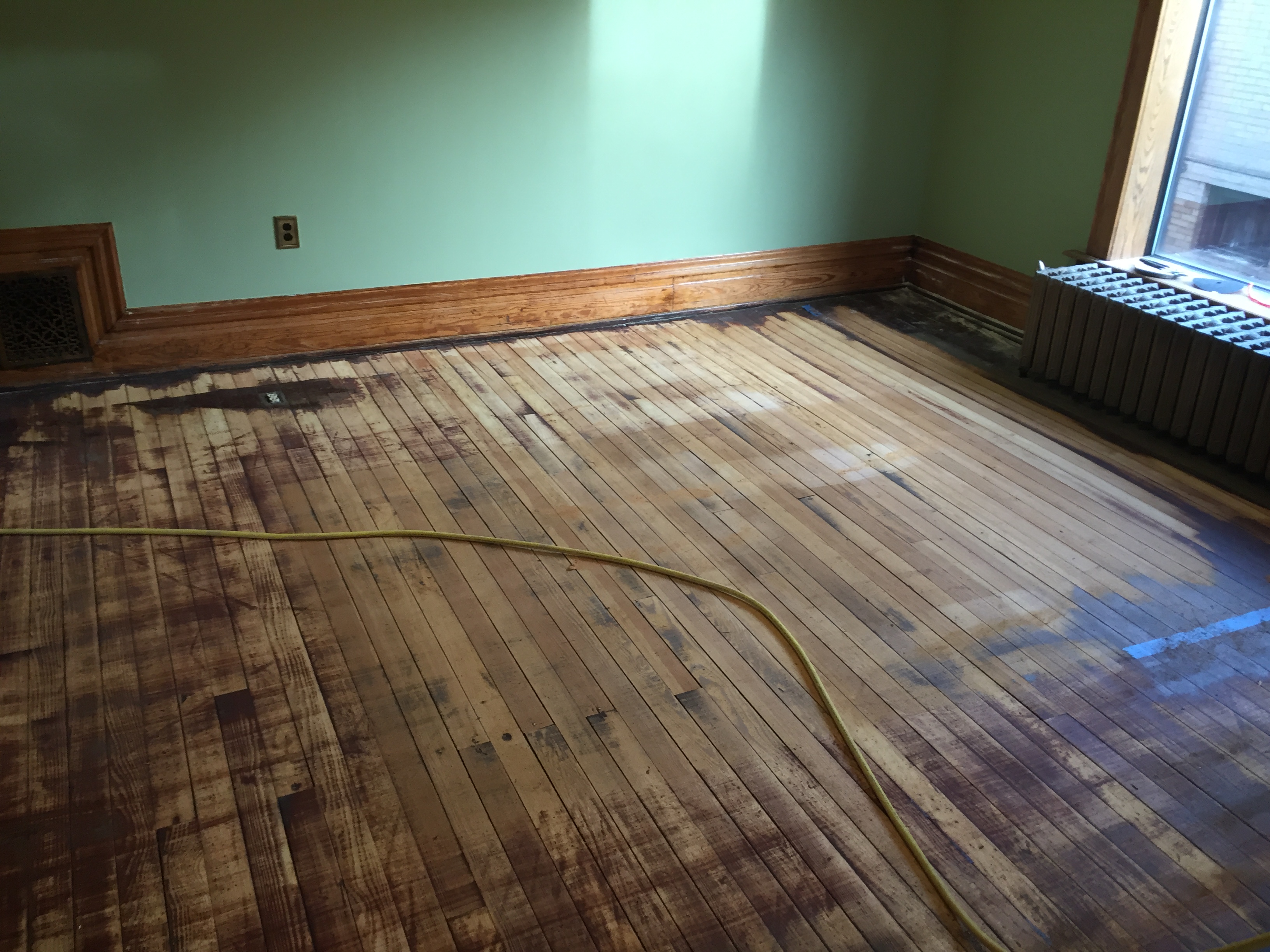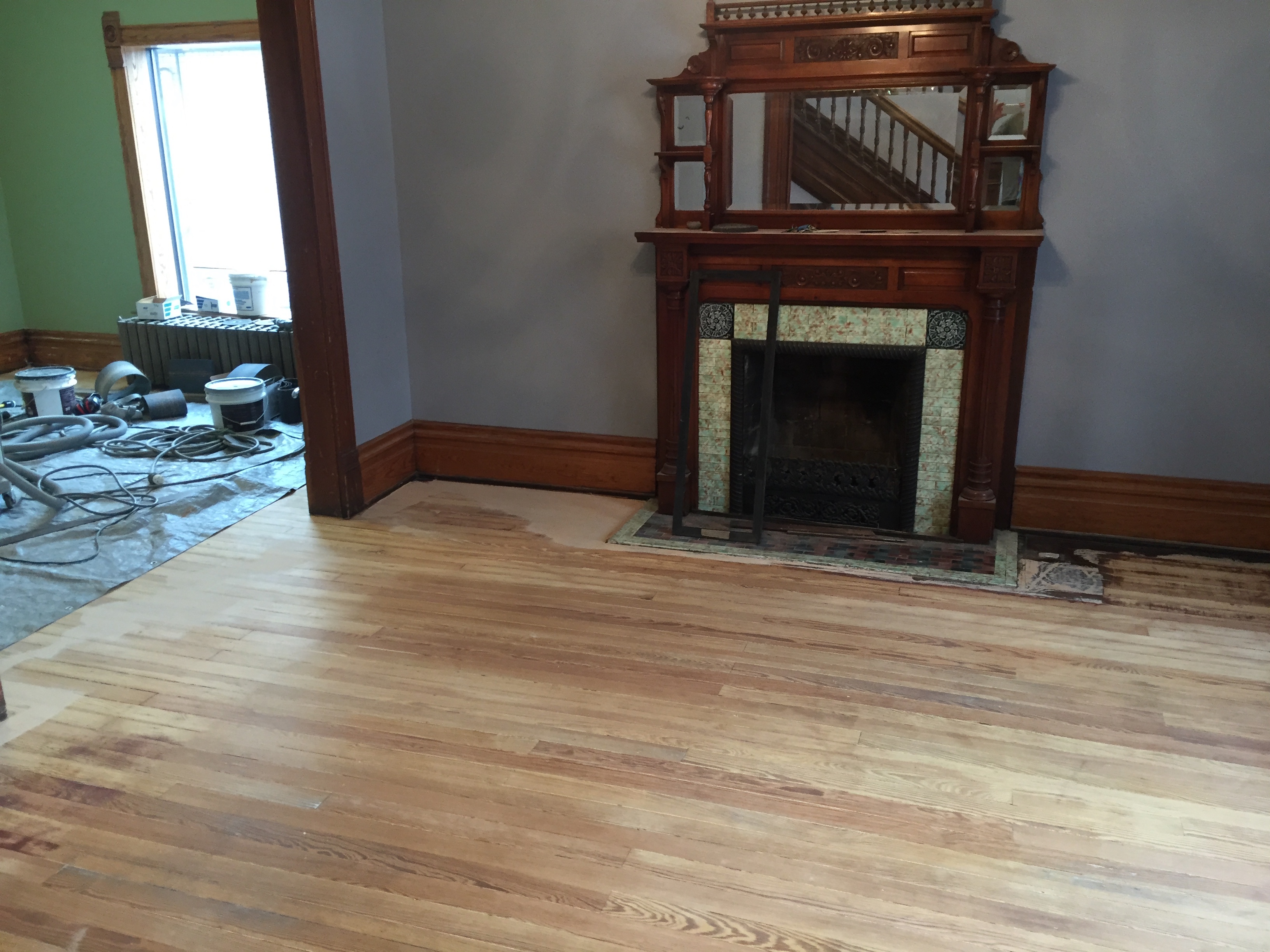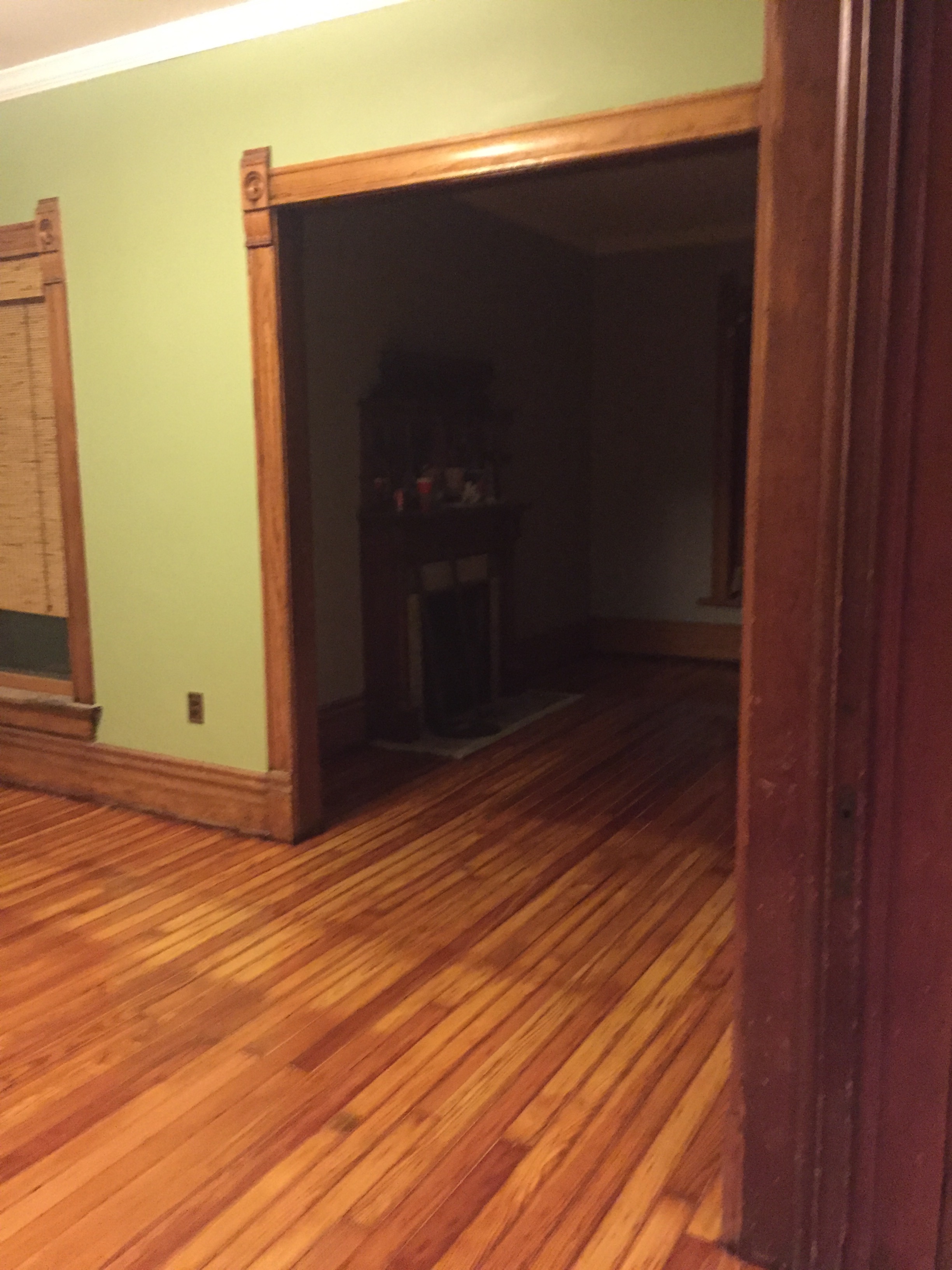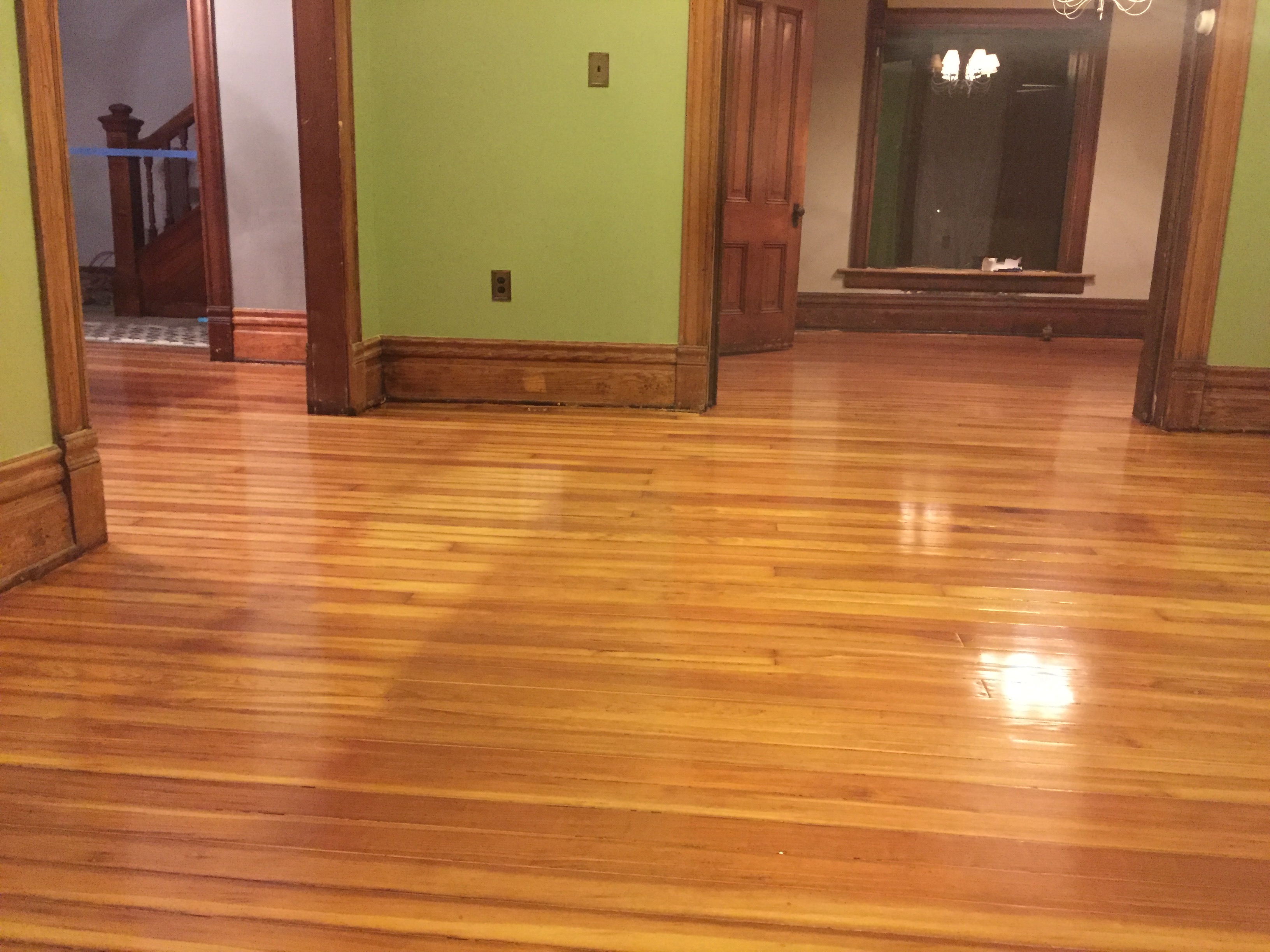Floors
Starting state
Job number one before move-in was the floors. It'll never be easier to refinish floors, than before the house is full of people, pets, and furniture. The floors are the original western fir floors, with no subfloor. If at all possible, we wanted to save the floors. We solicited multiple ‘quotes’, and got as many opinions as quotes, as to whether there was enough worth saving.
In addition to general wear & tear damage, there was a patch in the floor that used different lumber, made no attempt to color or grain match, and wasn't feathered into the other boards. In other words - it looked like a hack-job, and it was in one of the most heavily trafficed parts of the house.
While parts of the floor were beyond saving, we decided to save as much as we could, and give refinishing a try - knowing that these old floors had at most one more sanding left in them. Rather than patch in new wood, we decided to tear out the area with the most damage (the entryway), and use some of the more well-preserved wood to repair damage elsewhere.
Early progress
Knowing how hard it would be to match the fir used elsewhere, we decided to go a different direction with the entryway. We scoured the internet for ideas, and found a custom black & white marble pattern that we adored. It wouldn't quite fit the space as-is, but Wayne from Dowd Restoration helped us tweak the pattern, and then meticulously cut each tile. There were some soft spots in the original hardwood, so to be safe, we added a bit of bracing beneath the new subfloor - to ensure that the tile wouldn't flex. The result of all of this work: we think the result is stunning, and well worth the effort. Hopefully Wayne agrees.
Next up - the remaining fir. As was commonplace in old Victorian homes, many previous owners had placed area rugs on the floors, and had painted around those rugs.
The latext paint on the floor gunked up sanding disks in seconds (literally), causing far more time & materials than anticipated.
In addition, we decided to do it right, and move the enormous radiators (seen in the back of the far room above), which as it turns out, weigh more than a thousand pounds and can break a standard hard-cart.As the job progressed, the life returned to the floors.
Results
And after some poly, it became clear that the investment was worth it. There were still some visible signs of the longstanding rug, and the difference in light exposure, but with furnature, it's completely unnoticable.
We'll have to see how the floors stand up to our crazy 100 lb dog, and crazier toddler, but at first blush, we couldn't be happier.
